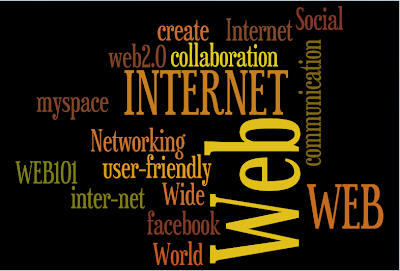INTRODUCTION: 'This week, we will be taking a look at blogs; what they are, the functions they perform in the age of participatory culture and the way that individual blogs have evolved into an ongoing conversation that has been termed 'the blogosphere'.
Introducing Blogging
Definition(s)
What is a blog?
On the surface this question appears a little simple. Linguistically, the term blog is a shortened form of weblog:
- Blog (noun): Shortened form of weblog.
- Blog (verb): The act of authoring a blog.
- Blogger (noun): One who blogs.
"The word blog is irrelevant, what's important is that it is now common, and will soon be expected, that every intelligent person (and quite a few unintelligent ones) will have a media platform where they share what they care about with the world." Seth Godin cited in Lecture Notes, (2008).
[Pasted from http://lms.curtin.edu.au/courses/1/305033-Vice-Chancello-111877403/content/_1253702_1/dir_
This week we have to read about early bloggers like Rebecca Blood
(weblogs: a history and perspective)
and Jill Walker Rettberg
who wrote one of the first books about Blogging
image: http://www.polity.co.uk
B inspired &
Get Blogging!
B inspired &
Get Blogging!
I'm finding it difficult to get through the readings - finding time and the reading is a bit heavy.
Their work is not unfamiliar to me, I have read the concepts before, in the early days of twitter with the likes of Ned Dale, Seth Godin, etc., I am sure i have come across this or similar material before. I was saturated by the expertise and influential marketing gurus who used blogs extensively as marketing tools.
Their work is not unfamiliar to me, I have read the concepts before, in the early days of twitter with the likes of Ned Dale, Seth Godin, etc., I am sure i have come across this or similar material before. I was saturated by the expertise and influential marketing gurus who used blogs extensively as marketing tools.
The Significance of Blogging
'As we have already seen, the idea that almost anyone can publish to the World Wide Web has initiated a new from of media - many-to-many. Nowhere is this more apparent than in the rise of the blog. With any individual able to publish and globally disseminate information, the role of the traditional journalist and news organisations have been thrown into question.'
An interesting concept, but one that doesn't hold a lot of significance for me personally, i think the world is fair game, and people have a right to record and report incidents as they see fit. I don't believe Journalism will fade to far into the past, there is always going to be the need for professional reporters of information. Things change so rapidly on the Internet, that what was once the big thing yesterday is today not so and in the future anything is possible.....it is very difficult to predict the outcome of the technological universe commonly referred to as the 'web'.






